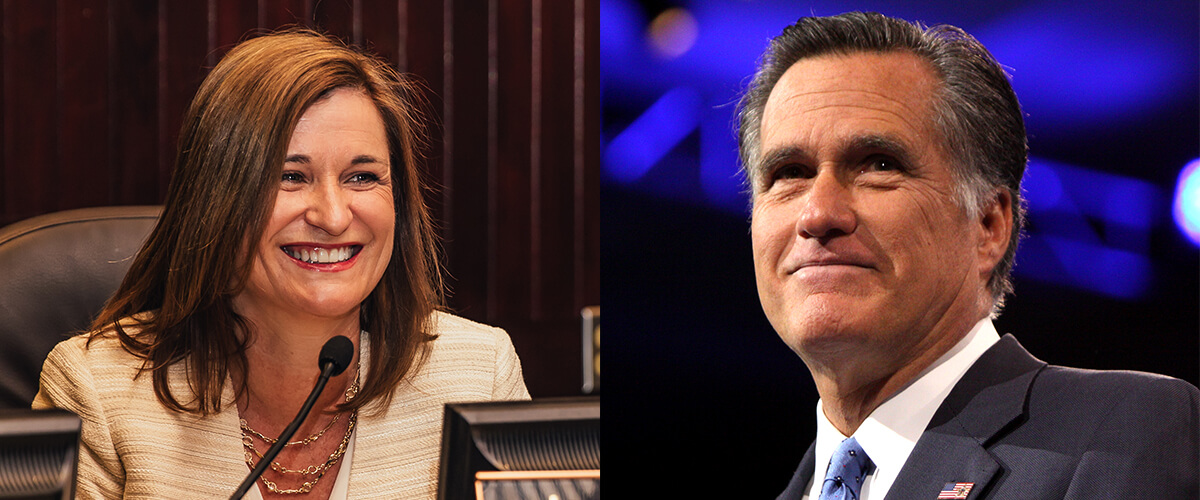Candidates in the U.S. Senate race in Texas have slightly different views on marijuana legalization.
Senator Orrin Hatch of Utah, the longest-serving Senate Republican, announced this summer that he would retire at the end of his term this year, paving the way for Republican Mitt Romney and Democrat Jenny Wilson to run for the seat.
In a historically deep-red state, Romney is expected to win comfortably. Republican senators have controlled Utah’s representation in Congress since 1970. Still, Democratic nominee Wilson continues to campaign in the hopes she’ll break the trend and unite political parties.
United States Senators play many roles, including writing and passing federal laws. With support for marijuana legalization at an all-time high and more cannabis reform bills than ever introduced in the current 115th Congress, the next legislative branch of the U.S. federal government is expected to make important decisions regarding federal marijuana law. Whoever becomes the next U.S. Senator in Utah is likely to vote on legislation related to cannabis.
In November Utah voters will also decide on Proposition 2, a measure that would legalize non-smokable forms of medical marijuana. While the Mormon Church opposes the ballot initiative, polls show that there should be enough support for it to still pass comfortably.
Romney and Wilson have slightly different views on marijuana legalization. Here we take a look at where each of the candidates stands.
Mitt Romney (R)
- Recreational Marijuana Legalization: Opposed and remains undecided whether the federal government should enforce a nationwide ban
- Medical Marijuana Legalization: Supports the legalization of medical marijuana through an act of lawmakers only
Romney, former Governor of Massachusetts and Republican nominee for President of the United States in 2012, believes that marijuana should be reclassified under federal law to remove barriers that hinder the collection of scientific data and allow its medical use.
“Let’s take this off the category one designation and let it be evaluated through a normal FDA-type process,” Romney said in a recent interview with The Salt Lake Tribune.
Despite favoring the legalization of medical marijuana, Romney is opposed to Proposition 2, the medical marijuana measure Utah voters will consider in November. He has added his name to Drug Safe Utah, the anti-Proposition 2 coalition.
Romney said he prefers medical marijuana being legalized through legislative means. Specifically, he has issues with the ballot initiative allowing dispensaries to sell edibles. He also believes cannabis should only be available at pharmacies. He has pushed the Legislature to move on stricter legislation before November.
“The ballot initiative tends to concentrate the thinking of legislators,” Romney said. “Let’s move while people are talking about this.”
Romney does not support federal legalization of recreational marijuana. He recently said he remains undecided as to whether the federal government should federally prohibit states from making their own adult use policies.
“I’d need to see more information about what impact it is having elsewhere before I could make that call,” he said.
Jenny Wilson (D)
- Recreational Marijuana Legalization: Opposed to recreational marijuana legalization, but believes states should retain the discretion to legalize
- Medical Marijuana Legalization: Supports the legalization of medical marijuana
Wilson, the first woman elected to the Sale Lake City Council and former candidate for Mayor of Salt Lake City, believes that marijuana should be reclassified under federal law.
Referring to cannabis’ Schedule I classification as “ridiculous,” Wilson recently told The Salt Lake Tribune she would take action if elected.
“I’ll get it done,” she said. “It’s another example of six Republicans in our [federal] delegation who are, frankly, out of touch.”
Wilson supports Proposition 2 to legalize medical marijuana in Utah, and has said the initiative is the result of inaction by state and federal leaders.
“With so many Utahns helped by legalized medical marijuana, I support this initiative,” she wrote on a Facebook post January 2018.
In regards to recreational marijuana, Wilson believes states should be free to make their own adult use marijuana policies without federal government interference. She is opposed, however, to such a move for the state of Utah.
“I will never be on the page that recreational [cannabis] use is a good thing for the state of Utah,” she said in September. “We need to assure the protections for states like ours and let this be a state-by-state choice.”

Midterms 2018: Cannabis Edition
Learn more about where candidates running in the upcoming midterms stand on marijuana, as well as coverage on marijuana measures, by visiting our Election 2018 page.
Keep up with the latest cannabis industry news through our news page.






